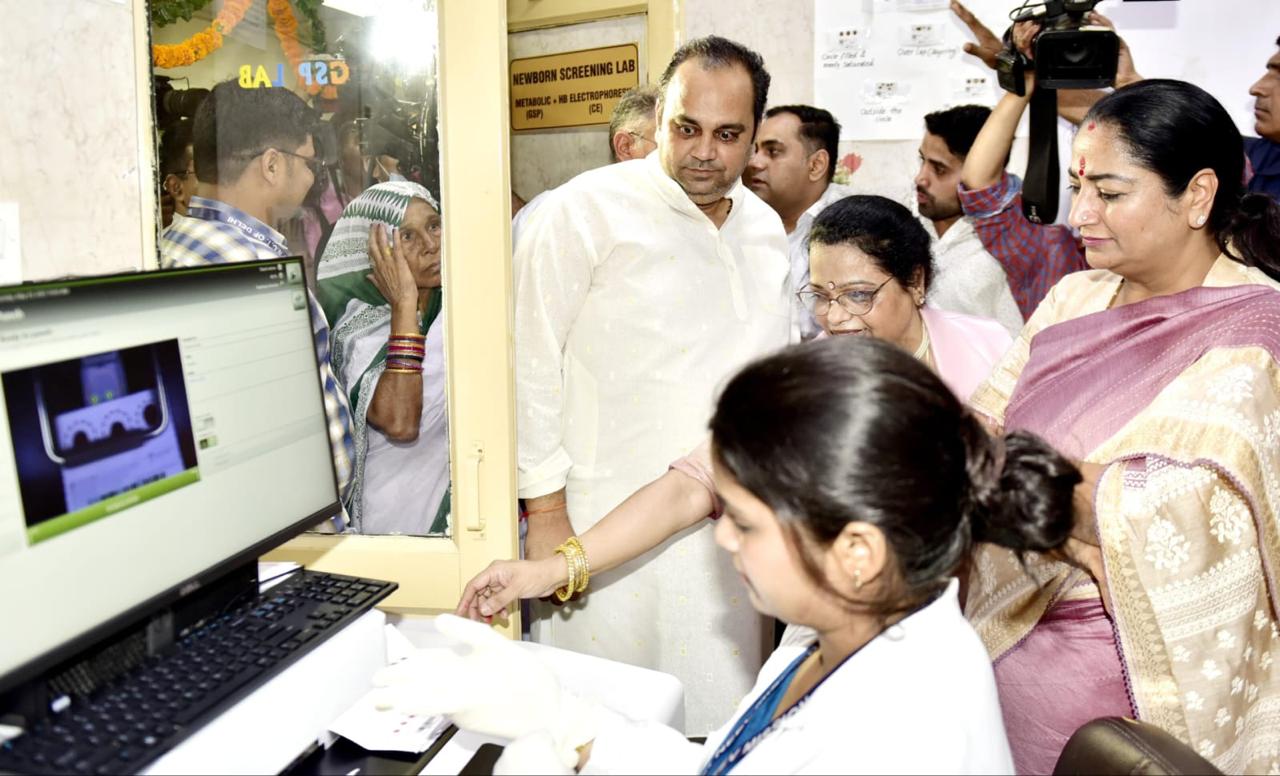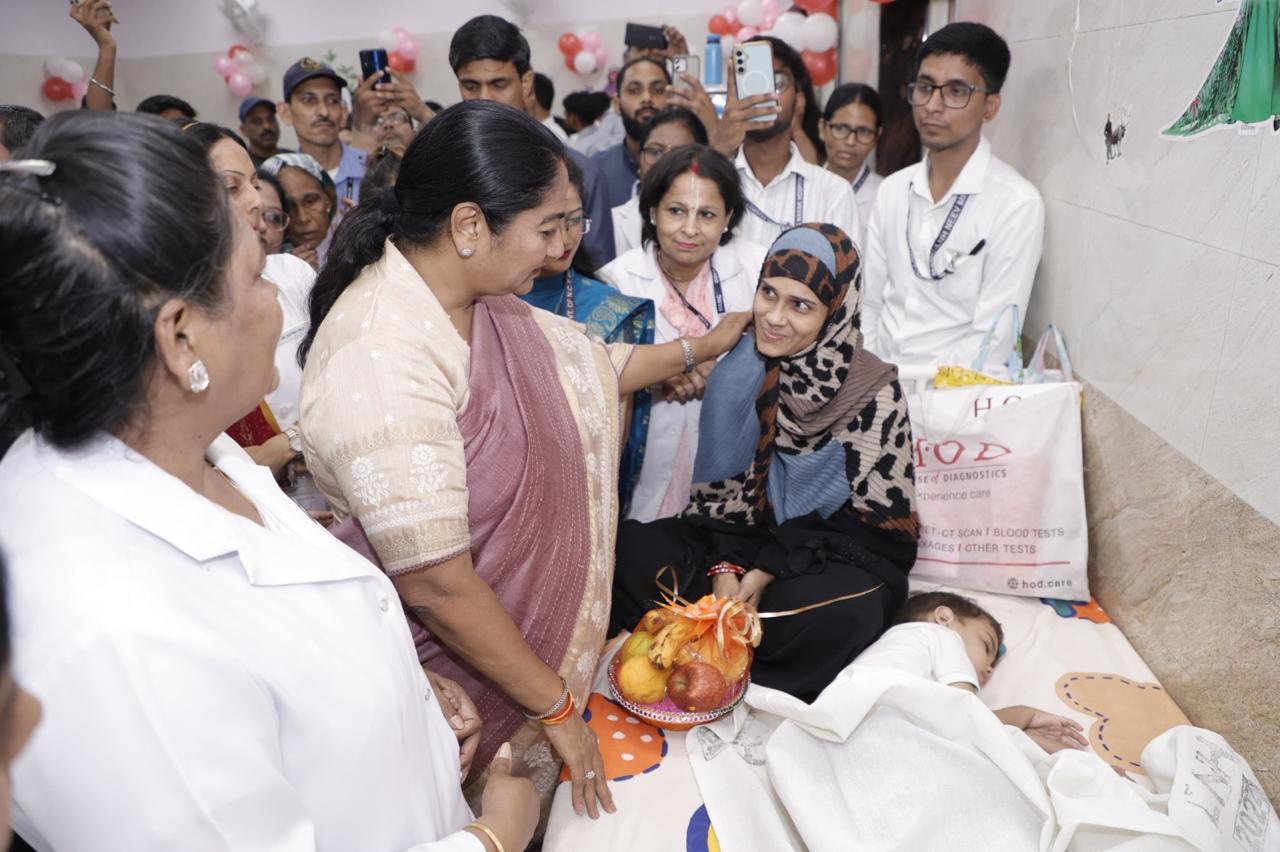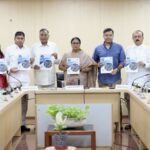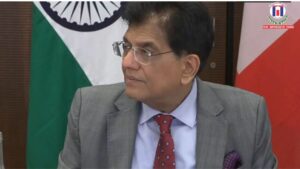
New Delhi, May 29, 2025 Delhi Chief Minister Smt. Rekha Gupta today inaugurated three highly significant healthcare facilities at LNJP Hospital—Medical Genetics Ward, Lactation Management Unit (LMU), and Nucleic Acid Amplification Testing (NAT) Lab. Speaking on the occasion, she stated that this is not just the beginning of new health services, but an important step toward strengthening the healthcare infrastructure of the capital. Delhi Cabinet Minister Dr. Pankaj Kumar Singh was also present at the inauguration.
Addressing the media after the event, the Chief Minister stated that the government is consistently working to enhance Delhi’s healthcare system. She said, “Our goal is to ensure accessible, high-quality, and timely medical services for every citizen—regardless of age, background, or region. A healthy Delhi is the foundation of a developed Delhi. With this vision, three highly advanced health services have been launched, setting a new milestone in the city’s medical infrastructure.”
CM Rekha Gupta shared that this is the first Delhi Government hospital to establish a Medical Genetics Department. It is the fourth such department among NMC-recognized colleges across India and the second to be linked with a Centre of Excellence for Rare Genetic Disorders. This department will provide comprehensive diagnosis, treatment and counselling services to patients with rare and complex genetic disorders. It will also be possible to treat new-borns who have serious diseases in their genes even before birth. Apart from this, the department is capable of providing care from prenatal stages to old age.

On the Lactation Management Unit (LMU), the CM explained that the unit is designed to serve preterm, low-birth-weight, and critically ill new-borns. It will offer breastfeeding counselling, safe milk collection and storage, and hospital-grade breast pumps for mothers. By ensuring the availability of “donor human milk,” the unit will help reduce the risk of neonatal sepsis and other complications. The Chief Minister emphasized the importance of establishing a ‘lactation management unit’ to ensure that needy infants receive life-saving nourishment, thereby helping reduce malnutrition and infant mortality.
Regarding the Nucleic Acid Testing (NAT) Lab, she informed that NAT is a highly sensitive diagnostic method capable of detecting viral infections like HIV, Hepatitis B, and C at an early stage. This is the first Delhi Government hospital to implement NAT technology. Previously, blood screening reports took up to 45 days; now they will be available within two days. This advancement is expected to save hundreds of lives annually by improving the safety and reliability of blood transfusions. The facility will benefit patients of all age groups—from new-borns to the elderly.
CM Gupta strongly criticized the state of healthcare infrastructure inherited from previous governments, calling it “deeply concerning.” She said that WHO recommends a minimum of two beds per 1,000 population. In contrast, despite pretense claims, not even one bed per 1,000 citizens was available. But now the Delhi Government aims to ensure at least three beds per 1,000 people within the next five years.

Also, to address the chronic shortages of medicines, staff, and medical equipment, the government has already begun taking concrete steps. A centralized and transparent drug procurement system has been introduced to ensure the timely availability of essential medicines. The recruitment process for doctors, nurses, paramedics, and other support staff is being expedited to fill all vacant posts in government hospitals without delay.
CM Gupta also expressed concern over the lack of diagnostic equipment in government hospitals. Many still do not have access to basic facilities like MRI and CT scans. Shockingly, the entire Delhi government health system currently operates with only few functional MRI machines. The CM termed it “shameful” and assured that all necessary technical equipment will soon be made available in hospitals across the capital.
She reiterated that providing comprehensive, accessible, and integrated healthcare to Delhi’s citizens is the government’s top priority. While initiatives like Ayushman Bharat Jan Arogya Yojana, Vay Vandana Yojana, and Jan Arogya Mandirs are already underway, she emphasized the need to create a fully integrated health system connecting primary, secondary, and tertiary care institutions for seamless service delivery.
The Chief Minister said that on completion of 100 days of the government, we have taken many policy decisions in the interest of the public and our government is continuously working on welfare schemes. Whether it is the availability of medicines, staff restoration, or ensuring better working environment in hospitals, we have started working on every front. She further said that the government is determined that no patient in the capital should lose their life due to lack of health services. She asserted that our aim is to ensure that Delhi must build a healthcare ecosystem so robust that people from other states and even abroad come here for treatment.
Health Minister Dr. Pankaj Kumar Singh stated, “We are continuously working to strengthen Delhi’s health infrastructure. Under the visionary leadership of Hon’ble Prime Minister Shri Narendra Modi, our government is committed to fulfilling the goal of a ‘Viksit Delhi’. All pending healthcare infrastructure projects will be completed soon and dedicated to the public. We have prioritized and implemented all central government healthcare schemes to ensure better medical services for every citizen of Delhi.”















No Comments: